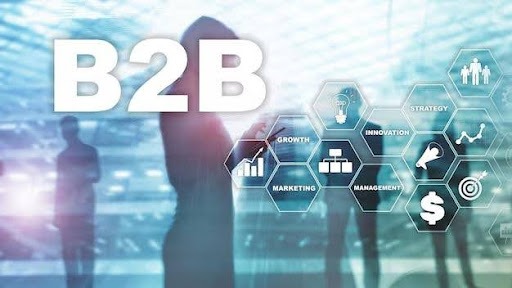Highlights
- B2B sales focus on transactions between companies, involving complex negotiations and long-term relationships.
- Key skills for B2B sales success include industry knowledge, communication, negotiation, and problem-solving.
- The B2B sales process includes prospecting, qualifying, presenting, and post-sales support.
- Common B2B challenges include long sales cycles, price sensitivity, and dealing with multiple decision-makers.
In today’s competitive market, understanding B2B sales is crucial for success in selling to businesses rather than individual consumers. Unlike B2C (business-to-consumer) sales, B2B sales—business-to-business sales—involve transactions between companies, often requiring longer sales cycles, complex negotiations, and relationship building.
What is B2B Sales?
B2B sales refers to transactions where businesses sell products or services to other businesses rather than to individual customers. This can include;
- Software companies selling technology solutions to corporate clients
- Wholesalers providing goods to retailers
- Manufacturers supplying components to other companies for their production processes.
B2B Sales Meaning and Definition
The B2B sales definition encompasses a broad range of sales types and models. A business-to-business sale is one where the buyer is a company or organization, not an individual consumer. In essence, B2B sales focus on fulfilling a company’s needs, whether that’s helping them increase efficiency, enhance profitability, or reduce costs.
Key Characteristics of B2B Sales
B2B sales differ from B2C in several ways. Here are some of the main characteristics:
- Longer Sales Cycles
B2B sales processes can take weeks or even months to complete, as they often require multiple meetings, negotiations, and consultations.
- Higher Transaction Value
Due to the nature of the products or services being sold, B2B transactions often involve substantial sums of money, sometimes hundreds of thousands or even millions of dollars.
- Complex Decision-Making Process
Multiple people, teams, or departments may be involved in the buying process. Understanding the specific needs of each stakeholder is essential for B2B sales success.
- Solutions-Oriented Approach
Rather than pushing products, successful B2B sales professionals work as advisors, helping clients find solutions to their unique challenges.
The Importance of B2B Sales Experience
When hiring for B2B roles, employers frequently look for B2B sales experience. This is because selling to businesses is not limited to email marketing or any such things, it requires unique skills not always found in B2C sales. B2B sales professionals need to be adept at understanding complex business problems, communicating effectively with diverse stakeholders, and managing long-term relationships.
An experienced B2B salesperson knows how to research prospects, identify decision-makers, and create tailored presentations that address specific business pain points. B2B sales experience is particularly valuable in industries such as;
- Technology
- Finance
- Healthcare
- Manufacturing
Here products and services are complex, and understanding the customer’s industry context is vital.
The B2B Sales Process
Here’s a breakdown of a typical B2B sales process:
- Prospecting
Identifying potential clients who could benefit from your product or service. This is the step that covers researching companies, finding the key contacts, and analyzing whether they are perfect to connect or not.
- Initial Outreach
Reaching out to prospects through cold calls, emails, or networking events. The goal here is to establish contact and pique interest.
- Qualifying Leads
Determining if the prospect has a genuine need, budget, and authority to make a purchase. Qualifying leads prevents wasted time and energy on unlikely buyers.
- Presenting and Demonstrating
Provide a tailored pitch or demo that shows how your product or service can solve the prospect’s specific challenges.
- Handling Objections
Addressing any concerns or questions raised by the prospect. Handling objections is crucial, as it builds trust and clears up misunderstandings.
- Negotiation and Closing
Working out terms and finalizing the sale. In B2B sales, negotiations can involve pricing, delivery schedules, and customization options.
- Post-Sale Support
Providing ongoing support to the client to ensure satisfaction and encourage repeat business. B2B sales often rely on long-term relationships, so this stage is vital.
Essential Skills for B2B Sales Success

Success in B2B sales relies on more than just product knowledge; it requires a specific set of skills:
- Industry Knowledge
B2B sales professionals should understand their industry and the challenges their clients face, allowing them to speak the client’s language and offer relevant solutions.
- Communication Skills
Clear, professional communication is essential for building relationships and explaining complex solutions to clients.
- Negotiation Skills
B2B sales often involve negotiations on pricing, terms, and customization and finding the terms that work for both parties.
- Problem-Solving
B2B sales require a consultative approach, where the salesperson identifies and addresses the client’s unique needs.
- Relationship Management
Long-term success in B2B sales depends on developing and maintaining strong relationships.
Challenges in B2B Sales and How to Overcome Them
B2B sales come with their own set of challenges, including competition, long sales cycles, and the need to convince multiple stakeholders. Here are some common B2B sales challenges and tips for overcoming them:
- Long Sales Cycles
Patience and persistence are key. Use this time to build trust, educate your prospect, and continuously demonstrate value.
- Price Sensitivity
In competitive industries, price objections are common. Be prepared to justify your value and explain how your solution can provide a return on investment.
- Multiple Decision-Makers
With more people involved, the process can be complex. Understanding each stakeholder’s needs and concerns is essential.
- Staying Relevant
With changing trends, B2B professionals need to stay updated on industry shifts and innovations.
Conclusion
B2B sales involves selling products or services to other companies and requires a strategic approach that addresses the needs of multiple stakeholders. B2B sales professionals play an essential role in building business relationships, providing tailored solutions, and navigating complex negotiations. To learn more about such technology insights, stay connected with Submit-blog. You can write for us, or publish your blog on our site, so feel free to contact us anytime.









